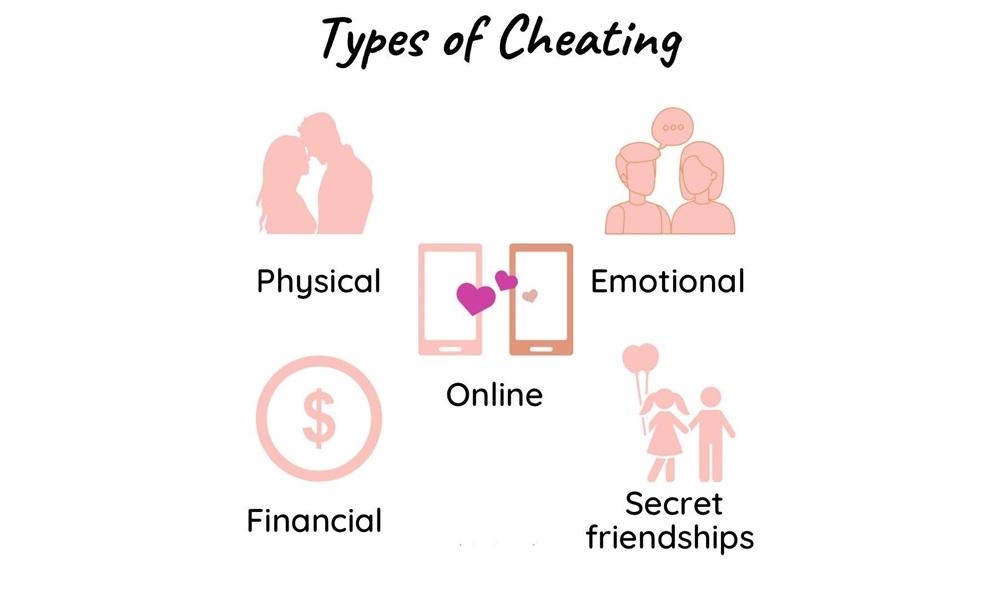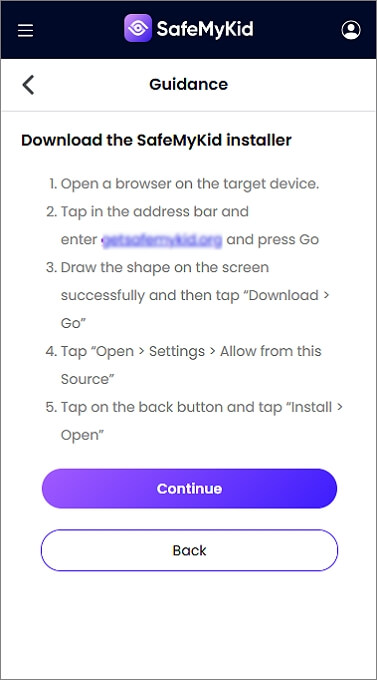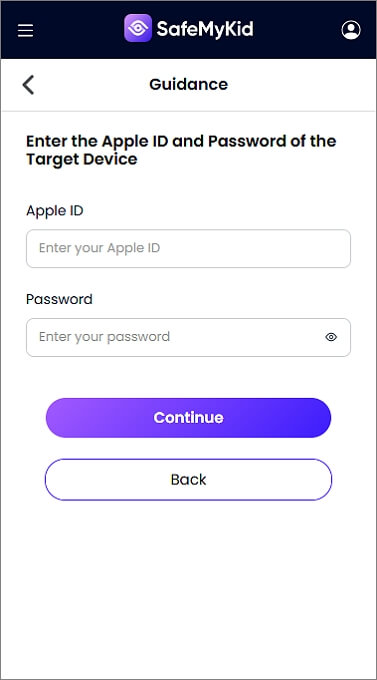Cheating in a Relationship: 6 Signs & 4 Ways to Catch a Cheater

Cheating in a relationship can be a devastating experience. Whether it's physical, emotional, or digital infidelity, discovering the truth is never easy. If you've noticed unusual behavior in your partner, you might be wondering: Are they cheating? What signs should I look for? And most importantly, how can I catch them?
In this article, we’ll cover everything you need to know about cheating in a relationship, including six major signs of infidelity and six effective ways to catch a cheater. If you're ready to uncover the truth, let’s dive in.

What Is Cheating in a Relationship?
Cheating isn’t just about physical intimacy—it can take many different forms. While some forms of infidelity are obvious, others are more subtle and emotional.
Types of Cheating in a Relationship
Understanding the different types of cheating can help you determine if your partner’s behavior crosses the line. Here are six common types:

This is the most widely recognized form of infidelity. It involves engaging in sexual activities with someone outside the relationship.
2. Emotional Cheating
Emotional infidelity occurs when one partner forms a deep, intimate connection with someone else, even if there’s no physical intimacy. Sharing secrets, feelings, and personal moments with someone other than your partner can lead to emotional cheating.
3. Online Cheating
With the rise of social media and dating apps, online infidelity has become more common. If your partner is secretly chatting, sexting, or engaging in inappropriate online behavior, it could be a sign of cheating.
4. Micro-Cheating
Micro-cheating involves small actions that might not seem like full-blown infidelity but still betray trust. Flirting, liking suggestive photos on social media, or maintaining a dating profile while in a relationship all fall under this category.
5. Financial Infidelity
If your partner is hiding financial transactions, sending money to someone secretly, or maintaining a financial connection with an ex, it could be a red flag for infidelity.
6. Cyber Affairs
Some individuals engage in secret relationships through online platforms without ever meeting in person. This form of cheating involves deep emotional or romantic exchanges over the internet.
Recognizing these different types of infidelity is crucial. If you suspect your partner is engaging in any of these behaviors, the next step is to look for warning signs.
Signs Your Partner Might Be Cheating in a Relationship
Cheating often comes with noticeable behavioral changes. While none of these signs alone confirm infidelity, they can indicate something is off in the relationship.

1. Sudden Changes in Communication
If your partner becomes distant, avoids meaningful conversations, or seems overly secretive about their phone, it could be a sign of cheating. A sudden shift in how they communicate with you is worth noting.
2. Increased Defensiveness
A cheating partner may get defensive when you ask simple questions. If they frequently overreact, change the subject, or accuse you of being paranoid, they might be hiding something.
3. Unexplained Absences or Late Nights
If your partner starts staying out late, taking sudden business trips, or being vague about their whereabouts, it could be a red flag. Pay attention to their schedule changes.
4. Decrease in Intimacy
A sudden drop in physical affection, lack of interest in sex, or emotional distance can be a sign that your partner is investing their energy elsewhere.
5. Unusual Phone or Social Media Behavior
If your partner starts hiding their phone, using encrypted messaging apps, or quickly closing windows when you walk by, they might be communicating with someone they don’t want you to know about.
6. Unexplained Financial Activity
If you notice mysterious expenses, hidden credit cards, or unexplained withdrawals, your partner might be spending money on someone else.
If your partner exhibits multiple signs from this list, it may be time to investigate further.
4 Ways to Catch a Cheater in a Relationship
If you suspect your partner is cheating, there are several ways to gather proof. Let’s explore four effective methods.

1. Monitor Changes in Routine
A sudden shift in daily habits can indicate infidelity. If your partner starts coming home late, changes their gym schedule, or frequently makes excuses to be out, take note of these changes.
Pros:
- ● Subtle and non-invasive – allows you to observe without direct confrontation.
- ● Helps you notice inconsistencies and behavioral patterns.
- ● No need for external tools or resources.
Cons:
- Routine changes can have innocent explanations (e.g., work pressure, new hobbies).
- Overanalyzing minor changes can lead to unnecessary paranoia.
- Lacks concrete proof – suspicions alone may not confirm cheating.
2. Check Their Digital Footprint
Many cheaters leave a digital trail. Check their browsing history, monitor social media activity, and look for hidden apps or secret conversations.
Pros:
- Can uncover hidden conversations, dating apps, or suspicious online behavior.
- Provides digital evidence that can confirm suspicions.
- Easy to do with access to shared devices or social media accounts.
Cons:
- Can violate privacy and trust in a relationship.
- Tech-savvy partners may delete their traces or use secret communication methods.
- Finding suspicious messages doesn’t always mean infidelity (e.g., misunderstandings or jokes).
3. Hire a Private Investigator
A private investigator can gather evidence discreetly. If you want concrete proof before confronting your partner, this might be a reliable option.
Pros:
- A professional approach ensures accurate and unbiased evidence.
- Discreet and legal – avoids personal confrontations or illegal surveillance.
- Provides tangible proof (photos, reports) if cheating is confirmed.
Cons:
- Expensive – hiring a PI can be costly, depending on the duration and complexity.
- Emotional toll – seeing concrete proof can be devastating.
- May not always provide immediate results, requiring patience.
4. Use SafeMyKid to Catch a Cheater
If you suspect your partner is cheating but lack solid proof, SafeMyKid is one of the most effective tools for uncovering the truth. Originally designed as a parental control app, SafeMyKid offers powerful monitoring features that can help track suspicious activity discreetly.
Unlike unreliable guesswork or confrontations without evidence, this tool provides factual insights into your partner’s phone activity, location, and communication patterns.

Why Choose SafeMyKid to Catch a Cheater?
There are many tracking solutions available, but SafeMyKid stands out for its accuracy, stealth mode, and ease of use. Unlike traditional methods like manually checking phone records or relying on a private investigator, SafeMyKid gives you real-time access to important data without alerting your partner.
- Real-Time Location Tracking – Know where your partner is at all times and verify if they’re really where they say they are. Unlike basic GPS trackers, SafeMyKid provides detailed location history so you can spot any unusual trips.
- Message and Call Monitoring – Access text messages, social media chats, and call logs to see who your partner is frequently communicating with. This helps detect secret conversations or hidden relationships.
- Stealth Mode for Complete Discretion – SafeMyKid operates invisibly on Android devices, ensuring your partner won’t suspect they’re being monitored. Unlike other apps that can be detected easily, SafeMyKid remains completely hidden.
- App Usage Reports – See which apps your partner is using the most. If they’re spending excessive time on dating apps, social media, or encrypted messaging platforms, it could be a red flag.
- Web Activity Tracking – Find out if your partner is visiting dating websites, chatting on suspicious forums, or engaging in other online behavior that suggests infidelity.
- Instant Alerts & Reports – Get notified of suspicious activity in real time so you don’t have to constantly check manually.
How to Use SafeMyKid to Expose Cheating in a Relationship
SafeMyKid allows you to monitor phone activity, track locations, and access call logs, helping you uncover potential signs of cheating. Here is how to use it:
How to Detect Cheating in a Relationship On Android
Step 1. Sign up
Create your account using your email address.

Step 2. Set up the app
Install the app discreetly on your partner’s phone and follow the simple on-screen instructions

Step 3. Monitor and expose cheating in a relationship on Android
Login to SafeMyKid dashboard to track the location of your cheating spouse, receive alerts, and monitor activity.

How to Detect Cheating in a Relationship On iPhone
Step 1.Sign up
Create an account using your valid email address.

Step 2. Set up
No app installation is needed –just use the owner’s iCloud credentials for setup.

Step 3. Monitor and catch a cheater in a relationship on iPhone
Log in to the SafeMyKid dashboard to track the location of your cheating partner, monitor activity, and receive alerts in real-time

Official vs. Third-Party Methods for Tracking Cheating in a Relationship
When trying to track a partner’s phone activity, you have two main options: official methods that rely on built-in phone features and third-party tracking apps that provide more advanced monitoring. Understanding the differences between these methods can help you choose the most effective approach.
Official Methods: Checking Phone Bills & Location Sharing
Many smartphones come with built-in tracking features that allow you to monitor certain aspects of a partner’s activity without installing third-party apps. These include:
- Checking Phone Bills: Reviewing call and text logs from carrier bills can help identify unusual activity, such as frequent communication with unknown numbers.
- Location Sharing Services: Apps, like Find My iPhone (iOS) and Google Maps Location Sharing (Android & iOS), allow users to share their real-time location with trusted contacts.
Pros of Official Methods:
- Uses built-in phone features – No need to install extra software.
- Doesn’t require third-party apps – Reduces security risks and privacy concerns.
Cons of Official Methods:
- Can be disabled easily – A partner can stop sharing their location or use privacy settings to hide activity.
- Limited access to messages and online activity – Official methods do not provide insight into texts, social media, or app usage.
- No real-time updates – Phone bill records are updated monthly, and location sharing depends on the user keeping it enabled.
Limitations of Third-Party Tracking Apps
Third-party tracking apps like SafeMyKid offer real-time monitoring, message tracking, and activity alerts, making them more effective than official methods. However, not all third-party apps are created equal, and some come with drawbacks.
Common Limitations of Third-Party Tracking Apps:
- Requires physical access to the target phone – Some apps need to be installed directly on the device.
- Drains battery quickly – Continuous GPS tracking and background activity can reduce battery life.
- Free versions offer limited functionality – Most advanced features, like social media monitoring and deleted message recovery, require a paid subscription.
For a balance of reliability and stealth, SafeMyKid remains one of the best options. While official methods provide limited tracking, SafeMyKid ensures comprehensive monitoring without detection, making it a superior option for uncovering hidden phone activities.
FAQs About Cheating in a Relationship
Trust issues and suspicions of infidelity can be overwhelming, leading many to seek answers about what comes next. Below are some common questions and answers to help navigate this difficult situation.
1. Can a relationship survive after cheating?
Yes, some relationships do survive infidelity, but it depends on both partners' willingness to rebuild trust, communicate openly, and seek professional help if needed.
2. Why do people cheat even in happy relationships?
Cheating isn’t always about dissatisfaction. Some people cheat due to personal insecurities, thrill-seeking, emotional disconnection, or external temptations, even if they love their partner.
3. How can I emotionally cope with discovering my partner cheated?
Take time to process your emotions, seek support from trusted friends or therapists, and avoid making impulsive decisions. Self-care and setting boundaries are crucial during this period.
4. Should I confront my partner if I suspect cheating but have no proof?
It’s best to gather enough evidence before confronting them. Accusing without proof may lead to unnecessary conflicts, denials, or counter-accusations.
5. What are some red flags of a guilty cheater during a confrontation?
They may shift blame, become overly defensive, gaslight you, or try to change the subject. Some cheaters also become unusually affectionate to cover their guilt.
Conclusion
Cheating in a relationship can be painful, but recognizing the signs and using the right methods to uncover the truth can help you make informed decisions.
If you suspect infidelity, observe behavioral changes, monitor digital activity, and use tools like SafeMyKid for proof. Whatever the outcome, prioritizing your emotional well-being is key.




